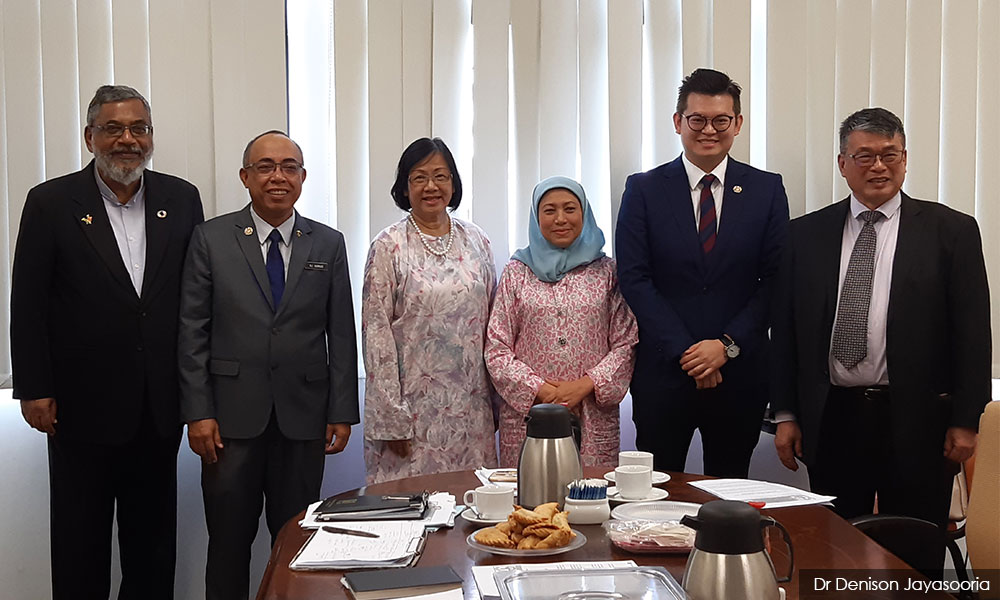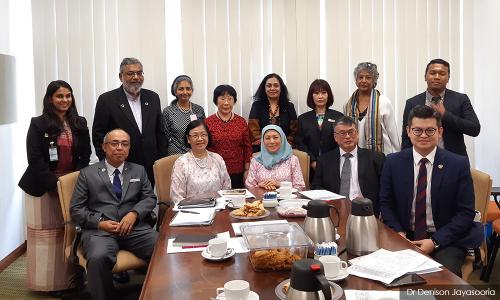A small spark of hope for bipartisan cooperation in SDGs
COMMENT | 2020 brings a small spark of hope for bipartisan cooperation in localising sustainable development goals (SDGs). This became possible when Parliament on Oct 17, 2019, approved the establishment of the All-Party Parliamentary Group Malaysia (APPGM) on SDGs.
This was part of the speaker’s reform agenda for the Malaysian parliament and an opportunity for multi-stakeholder engagement between parliament and the wider communities in society.
The APPGM is different from that of parliamentary select committees which are formal institutions of parliament comprising members from both sides of the house. The APPGM taken from the United Kingdom’s parliament is a body approved by parliament and operates independently as an interest group comprising members of both sides of the house, as well as open to both houses of parliament.
The unique feature is members of the APPGM who are parliamentarians can enlist partners from outside including civil society organisations, academicians and individuals from the private sector.
Therefore, with the approval of parliament in the setting of the first APPGM on SDGs, the Malaysian CSO SDG Alliance was recognised as the secretariat. The alliance has been active since Oct 2015 as an umbrella organisation networking among partners working on SDG matters including service CSOs, human rights CSOs, environmental CSOs, CSOs working on gender and other socio-economic concerns such as indigenous people, disability concerns and other vulnerable groups.
At the first meeting of the APPGM held on Oct 22, 2019, Maria Chin Abdullah was elected as chair and Nancy Shukri as the deputy. In all, there are ten members from the lower house and three from the upper house. About 12 CSO and think tank leaders are partners.
Another breakthrough is the allocation of RM2 million by the Ministry of Finance in the 2020 Budget for localising SDGs at the district and local authority level. Funds will be utilised for undertaking a mapping of issues, awareness and capacity building programs, direct implementation of solutions driven projects, research and documentation including policy advisory notes for parliamentarians on SDG related matters.

We are embarking on a 12 months (Jan to Dec 2020) pilot study of localising SDGs in 10 parliamentary constituencies in seven states (Kedah, Selangor, Pahang, Terengganu, Johore, Sabah and Sarawak). Our focus theme is ‘leaving no one behind’ and this project will be undertaken in four phases namely:-
Phase One: The mapping of issues and identification of stakeholders (agencies, CSOs, community leaders at the grassroots).
Phase Two: The formulation of solutions based on an SDG framework which is multi-dimensional and cross-cutting including identification of capacity building needs. This is the project design and application of grants for grassroots impact.
Phase Three: The execution stage where local solutions are executed at the ground level addressing the issues identified through effective solutions. Here we also will monitor the deliverables.
Phase Four is the impact assessment as well as drawing maco policy concerns from the grassroots experiences which will be shared via parliamentary speeches as well through policy discussion groups in parliament house.
The APPGM-SDGs provide unique opportunities for CSOs engagement in both issues identification as well as in addressing them through innovative projects for change at the grassroots. Only time will tell on the partnership model and the value of bipartisan cooperation in improving the quality of life of ordinary people who are at the bottom of the 40 in Malaysian society.
DENISON JAYASOORIA is former KITA-UKM professor of Public Advocacy, now servicing as head of the APPGM-SDG Secretariat in a voluntary capacity
The views expressed here are those of the author/contributor and do not necessarily represent the views of Malaysiakini.
RM12.50 / month
- Unlimited access to award-winning journalism
- Comment and share your opinions on all our articles
- Gift interesting stories to your friends
- Tax deductable
